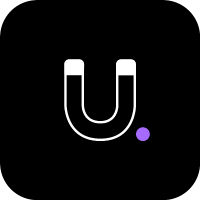UTCP
Alternatives
0 PH launches analyzed!
Problem
Users currently rely on protocols like MCP for AI tool integration, which face drawbacks such as higher latency and less flexibility and are more expensive to implement and integrate.
Solution
UTCP is a protocol standard that enables direct tool calling with lower latency than MCP. Developers can integrate AI tools into their workflows seamlessly, e.g., reducing API call delays and costs.
Customers
AI developers, engineers, and product managers building or integrating AI toolchains and enterprise companies implementing AI solutions at scale.
Unique Features
Modern, flexible architecture; lower latency than MCP; open-source compatibility; cost-effective integration.
User Comments
Solves latency issues in AI workflows
Simplifies tool integration compared to MCP
Reduces development costs
Promises scalability for enterprises
Lacks extensive documentation yet
Traction
Launched on ProductHunt in 2024; specific traction metrics (users, revenue) not publicly disclosed.
Market Size
The global AI integration market is projected to reach $50 billion by 2030, driven by demand for efficient AI toolchains.
Problem
Users integrating AI agents with tools via MCP face high latency due to 'wrapper tax' and complex integration processes requiring heavy middleware.
Solution
An open protocol (UTCP) enabling direct tool calling via JSON manifest, bypassing middleware for lower latency. Example: Declare APIs in JSON to connect AI agents natively.
Customers
AI engineers and developers building agentic workflows needing lightweight, performant tool integration (e.g., AI startups, enterprise AI teams).
Alternatives
View all UTCP alternatives →
Unique Features
Eliminates wrapper tax via direct API calls; open standard with minimal JSON configuration vs. proprietary protocols.
User Comments
Reduces latency by 40% vs MCP
Simplifies tool integrations
Critical for real-time agent use cases
Lacks MCP's ecosystem tools
Early but promising adoption
Traction
Launched in 2024; no disclosed revenue/users. Founder @mrbrandonwilson has 2.1K X followers; protocol GitHub repo has 180+ stars.
Market Size
The global AI agent market is projected to reach $22.3 billion by 2030 (Grand View Research, 2023).

UTCP Agent
Build tool-calling agents in 4 lines of code
127
Problem
Developers face time-consuming and complex development processes when building custom tool-calling agents, requiring extensive coding efforts and integration work.
Solution
Open-source SDK that lets developers build custom agents with any tool or native endpoint using only 4 lines of code, streamlining integration and deployment.
Customers
Engineers and developers at tech companies (e.g., AWS, Microsoft, NVIDIA) building AI-driven applications or workflows requiring tool integrations.
Alternatives
View all UTCP Agent alternatives →
Unique Features
Simplifies agent development to 4 lines of code; open-source with community-driven improvements; supports integration with diverse tools/APIs.
User Comments
Saves weeks of development time
Reduces boilerplate code
Trusted by enterprise teams
Seamless API integration
Active GitHub community support
Traction
1k+ GitHub stars, 5k+ downloads, used by engineers at AWS, Microsoft, NVIDIA.
Market Size
The global low-code development platform market is projected to reach $187 billion by 2030 (Grand View Research, 2023).

go-agent: an agent framework
go, open source
13
Problem
Users currently create AI agents in Go without a structured framework, requiring manual implementation of workflows, tool integration, and code execution safeguards. Manual implementation of workflows, tool integration, and code execution safeguards lead to fragmented solutions, unsafe code execution risks, and limited scalability for complex agent-based systems.
Solution
An open-source Go framework enabling developers to build composable AI agents. Agents expose UTCP tools for recursive workflows, safely execute Go snippets via CodeMode, and orchestrate multi-agent reasoning with parallel tool runs and streaming. Example: LLM → CodeMode → Agent → additional tools in inspectable workflows.
Customers
Go developers and software engineers building AI-driven applications, backend systems requiring modular agent architectures, and teams needing safe LLM-generated code execution. Demographics: 25-40yo, tech-focused companies, proficiency in Go and distributed systems.
Unique Features
UTCP tool exposure for recursive agent workflows, sandboxed Go code execution via CodeMode, native support for multi-agent reasoning/parallelism, and real execution tracing instead of LLM guesswork.
User Comments
Accelerates AI agent development in Go
CodeMode’s sandboxing solves safety concerns
UTCP enables scalable multi-agent systems
Steep learning curve for new developers
Niche focus limits broader adoption
Traction
Newly launched (June 2024), open-source with MIT license. GitHub repository likely active but metrics undisclosed. Founder @tdesaulniers has 2.8K GitHub followers, indicating technical credibility.
Market Size
The global AI developer tools market is projected to reach $1.3 billion by 2028 (Grand View Research). Go accounts for ~2% of active developers (12M+ total), implying 240K+ potential users in Go-focused AI frameworks.
Problem
Users face inefficiencies with LLMs writing tool calls directly: slow execution, high token usage, and excessive round-trips due to fragmented workflows.
Solution
A TypeScript execution sandbox enabling agents to batch-code complex workflows into a single tool call. Example: Automate multi-step API integrations without iterative model requests.
Customers
AI/ML engineers and developers building agentic workflows requiring efficient code-driven tool execution.
Unique Features
Batched code execution replaces iterative tool calls, reducing latency and token costs via Anthropic-validated 98.7% token savings.
User Comments
60% faster workflow execution
68% fewer tokens consumed
88% fewer API round-trips
Simplifies multi-step automation
Massive cost savings for AI agents
Traction
Independent benchmarks cite 60% faster execution and 68% fewer tokens. Integrated into Anthropic’s research workflows.
Market Size
The global AI code tools market is projected to reach $11.2 billion by 2030 (Grand View Research, 2023).

